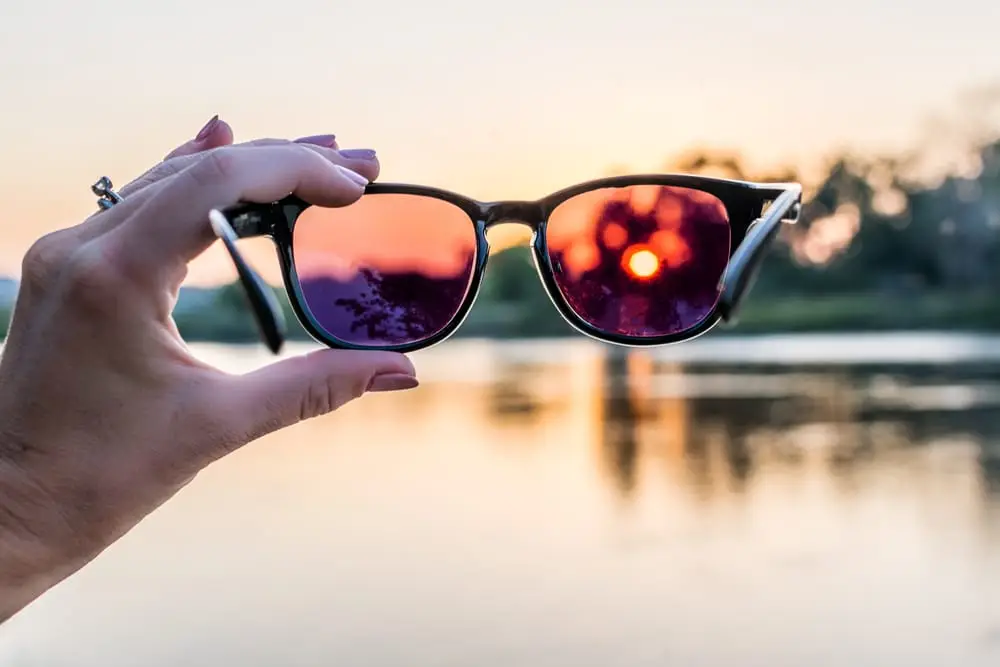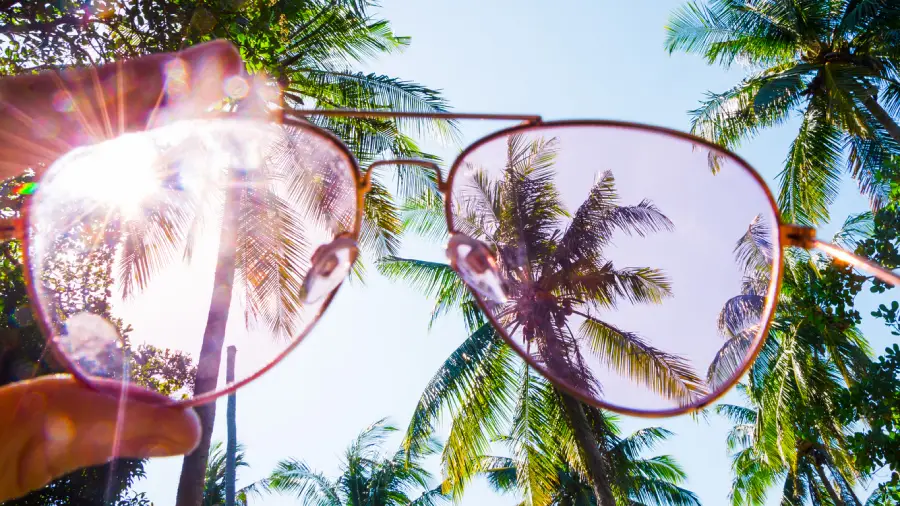Ever squinted your way through a sunny day or struggled with glare while driving? If so, polarized lenses might just be what you need. In this blog, we’ll explain everything about polarized lenses. exactly what they are, how they work to cut down that annoying glare, and why they might be a game-changer for your everyday comfort and safety. So, let’s get started!
Contents
What Are Polarized Lenses?

Polarized lenses are a type of eyewear designed specifically to reduce glare from surfaces like water, snow, and glass. They work by using a special chemical film that is applied to the lens. This film has molecules that align in a pattern that blocks certain light waves from passing through. Essentially, they filter out horizontal light waves, which are the main reasons behind glare, allowing only vertical waves to pass through.
The technology behind polarized lenses is all about enhancing visual comfort and clarity.
- By blocking blinding glare, these lenses help you see more clearly and sharply in bright conditions, making it easier to discern details that would otherwise be obscured.
- Additionally, they reduce eye strain significantly.
- Without the need to squint and strain your eyes in bright light, wearing polarized lenses can make activities like driving, skiing, or spending time on the water much more enjoyable and safer.
Types of Polarized Lenses
Polarized lenses come in a variety of tints and styles, each designed to cater to different lighting conditions and activities. Here’s a breakdown of the most common types and their specific uses:
- Gray Tint: Gray polarized lenses are all-purpose and provide the truest color perception. They are great for general use in outdoor activities, especially on bright sunny days. They effectively reduce glare and eye strain without altering the natural colors you see.
- Brown and Copper Tints: These tints are excellent for enhancing contrast and visual depth. They are particularly useful in varying light conditions, making them ideal for activities like fishing, golfing, or driving. The brown and copper shades make the environment appear warmer and are known to brighten up the surroundings on cloudy days.
- Green Tint: Green polarized lenses offer a good balance between contrast and color clarity. They reduce glare and help filter out blue light, providing a very natural vision. They’re suitable for multiple weather conditions and are popular among those who need to wear sunglasses for extended periods.
Key Benefits of Polarized Lenses

- Clearer vision during bright daylight, making it easier to see details.
- Minimizes glare from reflective surfaces such as water, snow, and glass, reducing eye strain.
- Enhances contrast, making it easier to discern shapes and colors more vividly.
- Less eye fatigue and more comfortable vision.
- Improves visibility on the road, particularly in bright or reflective conditions.
- better visual clarity and contrast for sports and activities that require precise visual cues.
- Offer UV protection, safeguarding the eyes from harmful ultraviolet light.
- Available in various stylish options that do not compromise on visual performance or comfort.
Common Disadvantages of Polarized Lenses
- Difficulty Seeing LCD Screens: Can make it hard to view screens on phones, GPS devices, and instrument panels, which appear black or very dark through polarized lenses.
- Issues in Low-Light Situations: Not ideal for use in low-light environments or at night as they can further diminish visibility.
- Higher Cost: Generally more expensive than non-polarized lenses due to the additional technology involved in manufacturing them.
- Color Distortion: Some users may experience slight color distortions due to the intense filtering of light.
- Limited Use in Certain Sports: Not recommended for downhill skiing or other sports where reflections from icy patches are necessary for assessing conditions.
- Compatibility Issues with Other Eyewear: May not be suitable to wear over prescription glasses unless specifically designed as clip-ons or fit-overs.
These drawbacks mean that while polarized lenses offer significant benefits in many scenarios, they might not be the best choice for every situation or for every user.
Which Is Better, UV or Polarized Sunglasses?

When choosing between UV protection and polarized sunglasses, it’s crucial to understand the distinct benefits of each to determine which is better suited to your needs.
UV-protected lenses are specifically designed to block harmful ultraviolet rays from reaching your eyes, which can cause long-term eye damage and conditions such as cataracts and macular degeneration.
On the other hand, polarized lenses offer numerous visual and comfort advantages (which UV glasses don’t). However, it’s important to note that polarization alone does not equate to UV protection. Therefore, the best sunglasses will combine both features:
- Opt for sunglasses that are polarized to enjoy the benefits of glare reduction.
- Ensure that the polarized lenses also have a label indicating they provide 100% UV protection.
Ultimately, polarized sunglasses with UV protection offer the best of both worlds. So, when purchasing sunglasses, look for options that clearly state they offer both polarization and full UV protection to ensure you receive the maximum benefits for eye health and comfort.
How To Tell If Glasses Are Polarized?
LCD Screen Method:
- Step 1: Take your sunglasses and look at an LCD screen, such as a computer monitor, smartphone, or a digital watch display.
- Step 2: If the lenses are polarized, you will notice the screen becoming darker or even completely black at certain angles. This is due to the polarizing filter in the glasses blocking the light waves from the screen when aligned at specific angles.
This is a quick and easy way to check if your glasses are equipped with polarized lenses, helping you ensure that you’re getting the glare reduction and eye protection you need for outdoor activities or everyday use.
Conclusion
Are your eyes in need of a little extra care? Whether it’s upgrading your lenses, checking for polarization, or addressing any other eye health concerns, now is the perfect time to take action.
If you’re thinking about having your eyes checked or if you have any concerns about your current glasses, you can visit EyeMantra Foundation and Book your free appointment at +91 9711116605.
